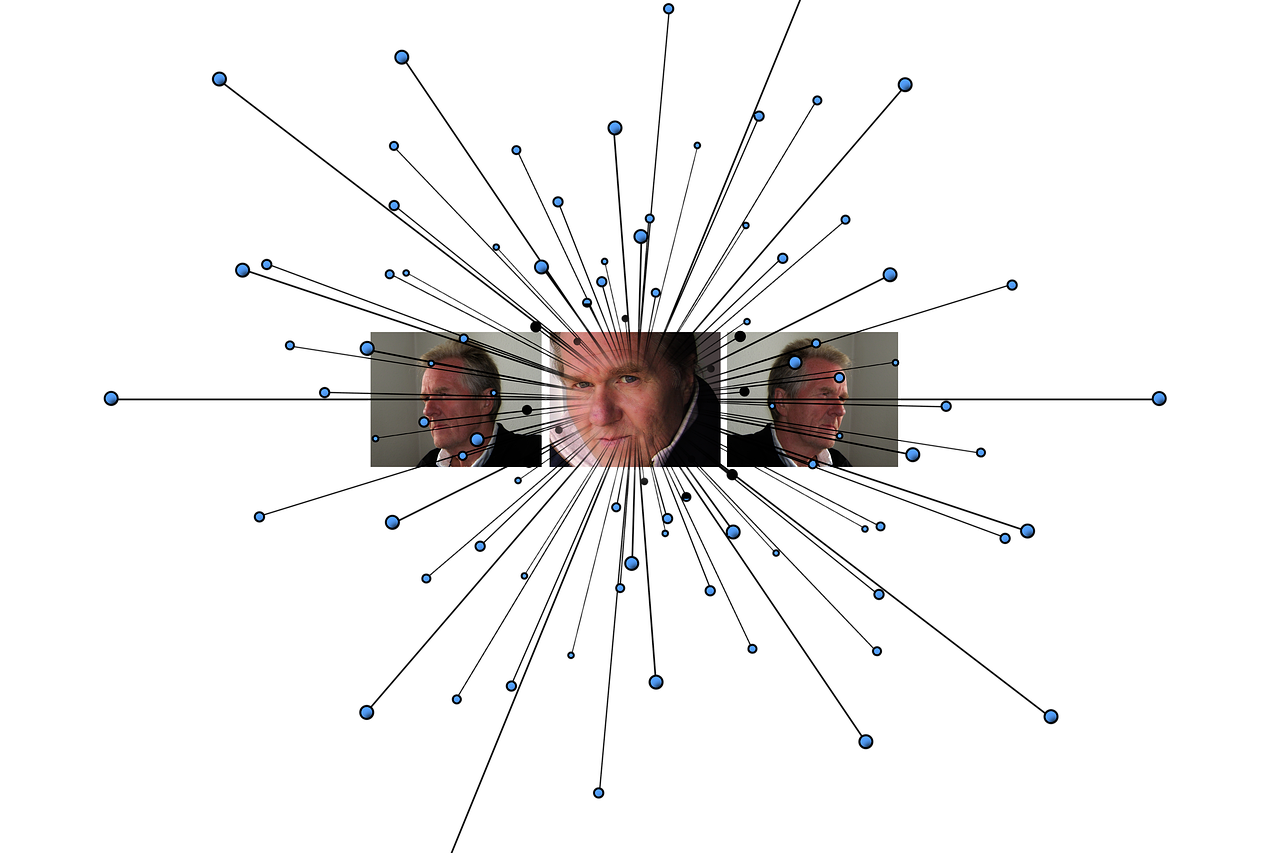Understanding the Philosophy behind Computer Sciences
In today's digital age, the field of computer science is not just about coding and algorithms; it’s a profound exploration of underlying principles that govern computation and technology. The philosophy behind computer science invites us to ponder fundamental questions: What is computation? How do algorithms influence our decision-making? And what ethical responsibilities do we hold as creators of technology? By diving into these philosophical waters, we can better understand the impact of technology on our lives and society.
The essence of computation can be likened to the intricate dance of thoughts and ideas, transforming abstract concepts into tangible solutions. At its core, computation is about problem-solving. It’s the process of taking a challenge, breaking it down, and finding a systematic way to address it. This notion is not confined to computer science alone; it permeates various fields such as mathematics, engineering, and even everyday life. Just as a chef follows a recipe to create a meal, computer scientists follow algorithms to solve complex problems.
Moreover, the philosophy of computer science encourages us to explore the nature of algorithms. Algorithms are more than just lines of code; they embody the logic and reasoning that drive our technological advancements. They are the backbone of decision-making processes, shaping everything from the way we interact with our devices to how businesses operate. By understanding the philosophical implications of algorithms, we can appreciate their role in shaping our world.
Now, let’s take a moment to reflect on the concept of abstraction. Abstraction in computer science is akin to using a map instead of navigating through every street in a city. It simplifies complex systems, allowing programmers to focus on high-level functionality without getting bogged down by the intricate details. This simplification is crucial for efficient problem-solving and enhances our understanding of computational processes.
In programming, different types of abstraction play a vital role in developing software systems. For instance, data abstraction allows programmers to manage data without needing to understand the intricate details of how it is stored or manipulated. Similarly, procedural abstraction enables the use of functions and procedures to encapsulate complex operations, making code more manageable and reusable. These abstractions not only enhance code readability but also promote maintainability, which is essential in an ever-evolving technological landscape.
The benefits of abstraction are manifold. By employing abstraction, developers can create software that is easier to understand and modify. This leads to significant advantages, such as:
- Enhanced Readability: Code becomes clearer and easier to follow.
- Improved Maintainability: Changes can be made with less risk of introducing errors.
- Increased Reusability: Components can be reused across different projects, saving time and effort.
These advantages underscore the importance of abstraction in fostering effective software development practices.
As we delve deeper into the philosophy of computer science, we cannot overlook the ethical considerations that accompany technological advancements. Issues such as privacy, security, and the societal impacts of technology are paramount. Computer scientists hold a significant responsibility to ensure that their innovations do not harm individuals or communities. The ethical implications of their work must be at the forefront of their minds, as they navigate the complex landscape of modern technology.
In conclusion, understanding the philosophy behind computer sciences is not merely an academic exercise; it is a necessary journey that enriches our comprehension of the digital world. By examining the nature of computation, the role of algorithms, the significance of abstraction, and the ethical responsibilities of technology creators, we can better appreciate the profound impact of computer science on our lives. As we continue to innovate and evolve, let us do so with a conscious awareness of the philosophical foundations that guide us.
- What is the main focus of computer science philosophy? It explores the foundational principles, ethical considerations, and implications of technology on society.
- How does abstraction help in programming? Abstraction simplifies complex systems, making code easier to read, maintain, and reuse.
- What are some ethical challenges in computer science? Privacy, security, bias in algorithms, and societal impacts of technology are key ethical concerns.

The Nature of Computation
When we think about computation, what comes to mind? Is it just a series of calculations performed by a machine? Or is it something deeper, a fundamental aspect of how we solve problems and interact with the world? At its core, computation is a process that transforms inputs into outputs through a defined set of rules. This transformation is not limited to numerical calculations; it encompasses a wide range of activities, from data processing to complex decision-making.
To grasp the true essence of computation, we need to explore various models and theories that have shaped our understanding. One of the most influential models is the Turing Machine, introduced by Alan Turing in the 1930s. This theoretical construct helps us analyze what it means for a function to be computable. Essentially, a Turing Machine can simulate any algorithmic process, making it a cornerstone in the field of computer science. The implications of this model extend far beyond theoretical boundaries; it challenges us to think about the limits of what can be computed and the nature of intelligence itself.
Another significant theory is the Church-Turing Thesis, which posits that anything computable can be computed by a Turing Machine. This thesis opens up a Pandora's box of philosophical questions. For example, if a process can be computed, does it mean it can be understood? Does understanding equate to computation? These questions are not just academic—they resonate in our daily lives as we increasingly rely on computers to make decisions for us.
In addition to these foundational theories, we also encounter the concept of computational complexity. This area of study looks at the resources required to solve a problem, such as time and space. Problems are classified into different categories, like P (problems that can be solved quickly) and NP (problems for which a solution can be verified quickly). Understanding these classifications helps us appreciate the challenges we face in fields like cryptography and optimization, where computational limits can have profound real-world implications.
Furthermore, computation is not just a solitary endeavor; it is often a collaborative process involving teams of people working together. This collaborative aspect brings in social and ethical dimensions, as the decisions made during computation can have far-reaching effects on society. For instance, the algorithms we create to process data can inadvertently reflect our biases, leading to outcomes that may not align with our ethical standards. Thus, the nature of computation is intertwined with the values and principles we uphold as a society.
To summarize, the nature of computation is a rich tapestry woven from theories, models, and ethical considerations. It challenges us to think critically about the processes we use to solve problems and the implications of those processes on our lives. The journey into the depths of computation is not just about understanding machines; it is about understanding ourselves and the world we inhabit.

Algorithms and Logic
When we talk about algorithms and logic in computer science, we're diving into the very heart of what makes technology tick. Algorithms are like the recipes in a cookbook, guiding us through a series of steps to achieve a specific outcome. Just as a chef follows a recipe to create a delicious meal, computer scientists use algorithms to solve problems, process data, and make decisions. But what exactly does this mean in a broader sense? How do these abstract concepts influence our daily lives and the decisions we make?
At the core of algorithms lies a profound relationship with logic. Logic serves as the framework for reasoning, enabling us to construct valid arguments and derive conclusions based on given premises. In computer science, logic is paramount; it helps us determine whether a certain condition is met or if a statement is true or false. Think of it as the foundation upon which algorithms are built. Without logic, algorithms would lack the necessary structure to function effectively. It’s almost like trying to build a house without a solid foundation—eventually, it will crumble!
To illustrate this connection, consider a simple algorithm designed to sort a list of numbers. The steps might look something like this:
1. Start with an unsorted list of numbers. 2. Compare the first two numbers. 3. If the first number is greater than the second, swap them. 4. Move to the next pair of numbers and repeat the process. 5. Continue until the entire list is sorted.
In this example, logic is used to determine whether to swap numbers based on their values. The algorithm relies on a logical comparison to dictate its actions, showcasing how intertwined these concepts are.
Moreover, algorithms can be categorized into different types, such as search algorithms, sorting algorithms, and graph algorithms. Each category has its own set of logical principles that guide its operation. For instance, search algorithms like binary search use a divide-and-conquer approach to quickly find an item in a sorted list, while sorting algorithms like quicksort or mergesort employ specific logical strategies to organize data efficiently.
However, the implications of algorithms and logic extend beyond mere computation. They also shape our decision-making processes in significant ways. For example, algorithms are at the heart of social media feeds, e-commerce recommendations, and even self-driving cars. They analyze vast amounts of data, making choices that affect our experiences and interactions. This raises important questions: Are we comfortable with machines making decisions for us? What happens when algorithms fail or exhibit bias?
As we navigate this intricate landscape, it becomes evident that understanding the philosophical implications of algorithms and logic is essential. It invites us to reflect on the ethical dimensions of technology and the responsibilities that come with creating and implementing these powerful tools. Ultimately, algorithms and logic are not just technical constructs; they are intertwined with the fabric of our society, influencing how we live, work, and interact with one another.
- What is an algorithm? An algorithm is a step-by-step procedure or formula for solving a problem or accomplishing a task.
- How does logic relate to algorithms? Logic provides the foundational rules and reasoning that algorithms use to make decisions and solve problems.
- Why are algorithms important in computer science? Algorithms are crucial because they determine the efficiency and effectiveness of data processing and decision-making in software applications.
- Can algorithms be biased? Yes, algorithms can exhibit bias if the data they are trained on is biased, leading to unfair or unethical outcomes.

The Role of Abstraction
Abstraction is a fundamental concept in computer science that serves as a bridge between complex systems and our understanding of them. Imagine trying to navigate through a vast forest without a map; it would be overwhelming and confusing. However, if someone provided you with a simplified map highlighting only the key paths and landmarks, you could traverse the forest with ease. This is essentially what abstraction does in the realm of computing—it simplifies complexity, allowing us to focus on the essential aspects of a problem while ignoring the extraneous details.
At its core, abstraction helps in breaking down large problems into smaller, manageable components. This process is not just about hiding complexity but also about emphasizing the relevant features that are vital for problem-solving. For instance, when programming, you often deal with various levels of abstraction, from high-level languages that allow you to write code in a more human-readable format to low-level assembly languages that interact directly with machine hardware. Each layer of abstraction serves a specific purpose, making it easier for developers to create efficient and effective solutions.
Moreover, abstraction plays a critical role in enhancing the efficiency of software development. By using abstract data types, programmers can define operations without needing to understand the intricate details of how those operations are implemented. This not only speeds up the development process but also promotes code reusability. For example, a developer can create a function to sort a list without worrying about the underlying algorithm each time they need to sort data. Instead, they can simply call the function, trusting that it will perform as expected.
In addition to facilitating problem-solving and improving efficiency, abstraction also aids in fostering collaboration among developers. When working in teams, having a clear abstraction allows team members to work on different parts of a project simultaneously without stepping on each other's toes. Think of it like a well-organized factory where each worker knows their specific role without needing to understand the entire production process. This division of labor is crucial for meeting deadlines and ensuring that projects are completed successfully.
To illustrate the importance of abstraction, consider the following table that outlines the different types of abstraction commonly used in computer science:
| Type of Abstraction | Description |
|---|---|
| Data Abstraction | Focuses on the data and its representation, allowing programmers to interact with data without needing to know its implementation details. |
| Procedural Abstraction | Involves defining procedures or functions that encapsulate specific tasks, enabling reuse and simplifying code management. |
| Control Abstraction | Concentrates on the control flow of a program, allowing developers to manage complex sequences of operations through simpler constructs. |
In conclusion, abstraction is not just a theoretical concept; it is a practical tool that empowers computer scientists and programmers to tackle complex problems efficiently. By providing a framework to simplify and manage complexity, abstraction enables innovation and fosters a collaborative environment in software development. As we continue to advance in technology, understanding and utilizing abstraction will remain a crucial skill for anyone in the field of computer science.
- What is the main purpose of abstraction in computer science?
Abstraction helps simplify complex systems by focusing on essential features while hiding unnecessary details, making problem-solving more manageable. - How does abstraction improve code reusability?
By creating functions or data types that can be reused across different parts of a program, abstraction allows developers to avoid rewriting code, saving time and effort. - Can you give an example of abstraction in programming?
Sure! When you use a built-in function likesort()in a programming language, you are utilizing procedural abstraction. You don’t need to know how the sorting algorithm works; you just call the function to sort your data.

Types of Abstraction
In the realm of computer science, abstraction serves as a powerful tool that enables developers to manage complexity by simplifying systems into manageable components. Think of it as a filter that allows us to focus on the essential aspects of a problem while ignoring the unnecessary details. There are several key types of abstraction that play a critical role in programming and software development, each with its unique significance and application.
The first type of abstraction is data abstraction. This involves the separation of the data structure from the operations that manipulate it. By using data abstraction, programmers can define complex data types and expose only the necessary operations to the outside world. For instance, when you think about a car, you don't need to understand the intricate details of its engine to drive it; you simply need to know how to operate the steering wheel, pedals, and gears. Similarly, data abstraction allows developers to interact with data without needing to delve into its underlying complexities.
Another vital type is procedural abstraction. This focuses on the procedures or functions that operate on data. It allows programmers to encapsulate functionality within procedures, creating a clear interface for interaction. For example, consider a recipe in a cookbook: it provides a list of ingredients and steps to follow without requiring you to understand the chemical reactions taking place during cooking. Procedural abstraction enables developers to write code that is modular and reusable, making it easier to maintain and update software systems.
Additionally, we have control abstraction, which deals with the control flow of a program. By using control structures like loops and conditionals, programmers can abstract away the intricate details of how a program executes, focusing instead on the logic of the program. Imagine you're following a map to reach a destination; you don't need to know every street and alley along the way, just the key turns and routes that lead you to your goal. Control abstraction allows developers to create clear and logical paths through their code, enhancing readability and comprehension.
To summarize, the types of abstraction in computer science—data abstraction, procedural abstraction, and control abstraction—are essential for managing complexity and enhancing the efficiency of software development. They allow programmers to create systems that are not only easier to understand and maintain but also more robust and flexible in the face of changing requirements. By leveraging these abstractions, developers can focus on solving problems rather than getting bogged down by the minutiae of implementation.
In conclusion, abstraction is akin to a lens that helps programmers see the bigger picture while navigating the intricate details of computer science. Embracing these various types of abstraction will not only improve the quality of software but also empower developers to innovate and push the boundaries of what technology can achieve.
- What is the main purpose of abstraction in computer science?
The primary purpose of abstraction is to reduce complexity by hiding the unnecessary details of a system, allowing developers to focus on high-level functionalities.
- How does data abstraction benefit software development?
Data abstraction allows developers to work with complex data types while exposing only the necessary operations, making the code cleaner and easier to manage.
- Can you give an example of procedural abstraction?
An example of procedural abstraction is a function that calculates the area of a rectangle; users only need to provide the length and width, without understanding the underlying calculations.

Benefits of Abstraction
Abstraction is a powerful concept in computer science that serves as a cornerstone for effective software development. It allows programmers to simplify complex systems into manageable components, making it easier to understand, develop, and maintain software. By focusing on the essential features of a system while ignoring the irrelevant details, abstraction empowers developers to tackle problems more efficiently. Think of it like driving a car: you don't need to know how the engine works to get from point A to point B; you just need to know how to steer, accelerate, and brake.
One of the primary benefits of abstraction is enhanced code readability. When code is abstracted, it becomes cleaner and more understandable. This clarity is crucial, especially when multiple developers are collaborating on a project. For instance, instead of diving into the nitty-gritty of how data is processed, a developer can simply interact with a well-defined interface. This not only speeds up the development process but also makes it easier for new team members to get up to speed. Moreover, clear abstraction layers can help in identifying bugs and optimizing performance.
Another significant advantage is improved maintainability. As software systems evolve, maintaining and updating code can become a daunting task. However, with abstraction, changes can often be made in one place without affecting the entire system. For example, if a particular function needs to be updated, as long as the interface remains the same, the rest of the code can continue to function without disruption. This modularity is akin to changing a light bulb without having to rewire the entire house.
Furthermore, abstraction fosters reusability. By creating generalized components, developers can reuse code across different projects or within various parts of the same project. This not only saves time but also ensures consistency and reduces the likelihood of errors. Imagine having a toolbox filled with versatile tools that can be used for multiple tasks; that’s what abstraction does for software development. It encourages a culture of sharing and collaboration, where developers can build on each other’s work.
In addition to these practical benefits, abstraction also plays a vital role in conceptual clarity. It allows developers to focus on solving high-level problems without getting bogged down by the low-level intricacies of the system. This is particularly important in complex domains like artificial intelligence or large-scale data processing, where the sheer volume of information can be overwhelming. By abstracting the underlying complexity, developers can concentrate on innovation and creativity, driving the field forward.
In summary, the benefits of abstraction in computer science are manifold. From enhancing code readability and maintainability to promoting reusability and fostering conceptual clarity, abstraction is an indispensable tool in the programmer's toolkit. As we continue to navigate the ever-evolving landscape of technology, embracing abstraction will be key to developing robust, efficient, and scalable software solutions.
- What is abstraction in computer science?
Abstraction is the process of simplifying complex systems by focusing on the essential features while ignoring the irrelevant details, making it easier to manage and understand. - How does abstraction improve code readability?
By providing clear interfaces and hiding unnecessary details, abstraction makes code cleaner and easier to understand, especially for teams working collaboratively. - Why is maintainability important in software development?
Maintainability allows developers to update and modify systems efficiently without disrupting the entire application, which is crucial for adapting to changing requirements. - Can abstraction aid in reusability?
Yes, by creating generalized components that can be reused across different projects, abstraction saves time and enhances consistency in software development.

Ethics in Computer Science
The field of computer science is not just about algorithms and code; it also encompasses a rich tapestry of ethical considerations that are increasingly relevant in our digital age. As technology evolves, so does the responsibility of those who create and manage it. Ethical dilemmas arise in various aspects of computer science, including privacy, security, and the broader societal impacts of technological advancements. For instance, the question of how personal data is collected, stored, and used is a pressing concern that demands careful consideration. With the rise of big data, companies have access to unprecedented amounts of information about individuals, raising serious questions about consent and ownership.
Moreover, the impact of artificial intelligence (AI) and machine learning (ML) on society presents unique ethical challenges. These technologies can enhance decision-making processes but also introduce potential biases that can lead to unfair outcomes. For example, if a machine learning algorithm is trained on biased data, it will likely produce biased results, perpetuating existing inequalities. This highlights the importance of transparency in algorithmic processes and the necessity for robust ethical frameworks to guide AI development. As computer scientists, we must ask ourselves: How do we ensure fairness and accountability in our technologies?
Additionally, the ethical implications of automation and AI on employment cannot be overlooked. As machines take over tasks traditionally performed by humans, we face a dilemma regarding the future of work. Will automation lead to greater efficiency, or will it exacerbate job displacement and economic inequality? The responsibility lies with computer scientists and technologists to not only innovate but to do so in a way that considers the human impact of their creations. This calls for a proactive approach to ethics, where potential consequences are anticipated and addressed before they manifest.
In light of these challenges, many organizations are now prioritizing ethical training for computer scientists and developers. It's essential to foster a culture of ethics within tech companies and educational institutions alike. By doing so, we can equip future generations with the tools they need to navigate the complex moral landscape of technology. In this context, we can identify several key ethical principles that should guide computer science practices:
- Privacy: Respecting user data and ensuring informed consent.
- Transparency: Making algorithms understandable and accountable.
- Fairness: Striving to eliminate biases in technology.
- Responsibility: Acknowledging the societal impact of technological advancements.
Ultimately, the conversation about ethics in computer science is not just an academic exercise; it is a vital discourse that shapes the future of our society. As we continue to push the boundaries of what technology can achieve, we must remain vigilant and committed to ethical principles that prioritize the well-being of individuals and communities. The challenge is not merely to create advanced technologies but to do so with a heart and a conscience, ensuring that our innovations serve humanity rather than undermine it.
Q1: What are the main ethical concerns in computer science?
A1: The primary ethical concerns include privacy, security, bias in algorithms, and the societal impact of technological advancements.
Q2: How can computer scientists ensure their work is ethical?
A2: By prioritizing transparency, fairness, and responsibility in their projects and actively engaging in discussions about the ethical implications of their work.
Q3: Why is ethical training important for tech professionals?
A3: Ethical training helps professionals understand the potential consequences of their work and equips them with the knowledge to make responsible decisions in their field.

The Impact of Artificial Intelligence
Artificial Intelligence (AI) is not just a buzzword; it’s a revolutionary force that is reshaping our world in ways we never imagined. Think about it: AI is like the magic wand of the digital age, transforming mundane tasks into automated processes, enhancing decision-making, and even driving innovations in fields such as healthcare, finance, and education. But with great power comes great responsibility, and the implications of AI stretch far beyond its technical capabilities. It raises profound philosophical questions about what it means to be human, how we define intelligence, and the ethical considerations that come with creating machines that can think and learn. Are we ready for this brave new world?
One of the most pressing concerns surrounding AI is its impact on human cognition. As machines become more capable of performing complex tasks, we must ask ourselves: are we enhancing our abilities or becoming overly reliant on technology? The convenience that AI brings is undeniable; however, it also poses a risk of diminishing our critical thinking skills. Imagine a world where we no longer need to solve problems ourselves because an algorithm does it for us—what happens to our creativity and innovation? This dilemma is at the heart of the discourse on AI and its role in society.
Moreover, the ethical implications of AI cannot be overlooked. From privacy concerns to issues of bias in algorithms, the technology that promises to improve our lives also has the potential to infringe on our rights. For instance, AI systems trained on biased data can perpetuate existing inequalities, leading to unfair treatment in areas like hiring, law enforcement, and lending. This brings us to the question of accountability: who is responsible when an AI system makes a mistake? Is it the developer, the user, or the machine itself? These questions are critical as we navigate the complexities of AI.
To better understand the impact of AI, consider the following table that outlines some key areas affected by artificial intelligence:
| Area | Impact |
|---|---|
| Healthcare | Improved diagnostics, personalized medicine, and robotic surgeries. |
| Finance | Fraud detection, automated trading, and personalized banking services. |
| Education | Adaptive learning platforms, virtual tutors, and automated grading systems. |
| Transportation | Autonomous vehicles, traffic management systems, and enhanced logistics. |
As we delve deeper into these implications, it's essential to engage in critical discourse about the future of work in an AI-driven world. Will AI create jobs or eliminate them? The answer is not straightforward. While AI can automate repetitive tasks, it also has the potential to create new job opportunities that we can't yet envision. This duality is what makes the conversation around AI both exciting and daunting. We must prepare ourselves for a future where humans and machines coexist, collaborating to solve problems and drive innovation.
In conclusion, the impact of artificial intelligence is a multifaceted issue that requires careful consideration and ethical scrutiny. As we continue to explore the capabilities of AI, we must remain vigilant about the implications it has on our society, our values, and our very humanity. The questions we ask today will shape the future we live in tomorrow. Are we ready to embrace the challenges and opportunities that AI presents?
- What is Artificial Intelligence? - AI refers to the simulation of human intelligence in machines that are programmed to think and learn.
- How does AI impact the job market? - AI can automate tasks, potentially leading to job displacement, but it also creates new opportunities in emerging fields.
- What are the ethical concerns surrounding AI? - Key concerns include privacy, bias, accountability, and the societal impacts of automation.
- Can AI improve decision-making? - Yes, AI can analyze vast amounts of data to provide insights that enhance decision-making processes.
- What is the future of AI? - The future of AI is uncertain, but it promises to bring significant changes across various sectors, necessitating ongoing discussions about its implications.

Machine Learning and Ethics
In the rapidly evolving world of technology, machine learning stands out as a game-changer. It’s like giving computers a pair of glasses to see patterns in vast amounts of data, but with this newfound vision comes a hefty responsibility. As we dive into the realm of machine learning, we must grapple with a myriad of ethical challenges that arise. From bias in algorithms to the transparency of decision-making processes, the implications are profound and far-reaching.
One of the most pressing issues in machine learning is bias. Just like a painter can unintentionally favor certain colors, algorithms can inherit biases present in the data they are trained on. This can lead to discriminatory outcomes that affect real lives. For instance, if a machine learning model used for hiring is trained on historical data that reflects past hiring biases, it may perpetuate those biases, unfairly disadvantaging qualified candidates. The question arises: how do we ensure fairness in a system that learns from potentially flawed data?
Another ethical concern is transparency. Many machine learning models, especially deep learning networks, operate as black boxes. This means that even the developers may not fully understand how a model arrives at its conclusions. Imagine a doctor prescribing medication based on a machine's advice without knowing how that machine reached its decision. This lack of transparency can erode trust and accountability. Stakeholders, from developers to end-users, need to understand the decision-making processes behind machine learning applications.
Additionally, we must consider accountability. When a machine learning model makes a mistake—say, misidentifying a person in a security system—who is responsible? Is it the developer, the organization deploying the model, or the machine itself? These questions are not just theoretical; they have real-world implications, especially in sectors like healthcare and law enforcement, where the stakes are incredibly high. Establishing clear lines of accountability is crucial as we navigate the integration of machine learning into our daily lives.
To tackle these challenges, it’s essential to create robust ethical frameworks that guide the development and deployment of machine learning technologies. Some key components of such frameworks include:
- Fairness: Ensuring that algorithms do not discriminate against any group.
- Transparency: Making the workings of algorithms understandable to users.
- Accountability: Establishing who is responsible for the outcomes of machine learning applications.
- Privacy: Safeguarding user data and ensuring consent in data usage.
As we venture further into this digital age, the intersection of machine learning and ethics will only grow more complex. It’s imperative for developers, policymakers, and society at large to engage in ongoing dialogues about these issues. By fostering a culture of ethical awareness, we can harness the power of machine learning while minimizing its potential harms.
Q1: What is machine learning bias?
A1: Machine learning bias occurs when an algorithm produces unfair outcomes due to prejudiced data or flawed assumptions in its design. This can lead to discrimination against certain groups.
Q2: Why is transparency important in machine learning?
A2: Transparency is crucial because it allows users and stakeholders to understand how decisions are made by algorithms, which fosters trust and accountability in machine learning systems.
Q3: How can we address ethical concerns in machine learning?
A3: Addressing ethical concerns involves creating frameworks that prioritize fairness, transparency, accountability, and privacy, as well as engaging in continuous dialogue among developers, users, and policymakers.

Philosophical Perspectives on AI
Artificial Intelligence (AI) is not just a technological marvel; it’s a profound philosophical enigma that challenges our understanding of consciousness, ethics, and what it means to be human. When we think about AI, we often find ourselves grappling with questions that stretch beyond the realm of computer science and into the very fabric of our moral and existential beliefs. For instance, can machines truly think, or are they merely simulating human thought? This debate has sparked a variety of philosophical perspectives that offer different lenses through which we can examine the implications of AI in our lives.
One of the most prominent philosophical frameworks applied to AI is utilitarianism, which suggests that the best action is the one that maximizes overall happiness or utility. In the context of AI, this perspective raises critical questions about the outcomes of AI deployment. For example, if an AI system can optimize resource allocation to reduce poverty, does that justify potential job losses in certain sectors? The utilitarian approach encourages us to weigh the benefits of AI against its societal costs, prompting us to consider how we can maximize positive outcomes while minimizing harm.
Conversely, the deontological perspective, primarily associated with philosopher Immanuel Kant, emphasizes the importance of duty and adherence to moral rules. From this viewpoint, the development and implementation of AI must respect ethical principles, such as fairness and justice, regardless of the outcomes. This raises significant concerns regarding bias in AI algorithms. If an AI system is trained on biased data, it may perpetuate existing inequalities, thus violating the moral duty to treat all individuals with fairness. Therefore, deontologists argue for strict ethical guidelines in AI development to ensure that machines are programmed to uphold human values.
Moreover, the existentialist perspective invites us to reflect on the implications of AI for human identity and agency. As machines become increasingly capable of performing tasks traditionally reserved for humans, we must ask ourselves: What does it mean to be human in an age of intelligent machines? This perspective challenges us to consider the essence of human experience and whether our unique qualities—such as creativity, empathy, and moral judgment—can be replicated or replaced by AI. The existentialist lens encourages a deeper exploration of our relationship with technology and the potential consequences of relinquishing our roles to machines.
To further enrich our understanding of these philosophical perspectives, let’s examine a few key ethical dilemmas that arise in the context of AI:
- Autonomous Decision-Making: Should AI systems be allowed to make decisions that affect human lives, such as in healthcare or criminal justice?
- Accountability: Who is responsible when an AI system causes harm? Is it the developer, the user, or the machine itself?
- Privacy Concerns: How do we balance the benefits of AI data collection with the need to protect individual privacy?
These dilemmas highlight the necessity for ongoing philosophical discourse as we navigate the complexities of AI. The interplay between technology and ethics is not merely academic; it has real-world implications that affect our daily lives. As AI continues to evolve, so too must our philosophical frameworks, ensuring that we remain vigilant in our pursuit of a future where technology serves humanity, rather than the other way around.
- What is the main ethical concern regarding AI? The main ethical concerns revolve around bias, accountability, and the potential loss of privacy.
- How can philosophical perspectives help in AI development? They provide frameworks for evaluating the ethical implications of AI technologies and guide responsible development.
- Is AI capable of making ethical decisions? AI can simulate decision-making processes, but it lacks true understanding and moral reasoning.
Frequently Asked Questions
- What is the essence of computation in computer science?
The essence of computation revolves around the process of problem-solving through various models and theories. It defines how we can manipulate data and perform calculations, ultimately leading to solutions across different domains. Think of computation as the engine that powers the software we use daily, whether it’s a simple calculator or a complex AI system.
- How do algorithms influence decision-making?
Algorithms are the backbone of computer science and play a crucial role in decision-making processes. They provide a set of rules or instructions to follow, helping us to analyze data and arrive at conclusions efficiently. Imagine algorithms as recipes; just like following a recipe leads to a delicious meal, following an algorithm helps in reaching a well-informed decision.
- What is abstraction, and why is it important?
Abstraction simplifies complex systems by hiding unnecessary details, allowing programmers to focus on high-level functionalities. It’s like using a remote control for your TV—you don’t need to understand the intricate wiring; you just press a button to get what you want. In software development, abstraction enhances code readability, maintainability, and reusability, making it easier to manage and evolve software systems.
- What ethical considerations should computer scientists keep in mind?
Computer scientists must navigate a landscape filled with ethical considerations, such as privacy, security, and the societal impacts of their work. As technology continues to advance, the responsibility to ensure that these technologies are used for the greater good becomes increasingly important. It’s like being a guardian of information; you need to protect it while ensuring it benefits society.
- How does artificial intelligence challenge our understanding of ethics?
Artificial intelligence introduces complex ethical dilemmas, particularly regarding bias, transparency, and accountability. As AI systems become more integrated into our lives, it’s essential to critically examine their implications on human cognition and the future of work. Think of AI as a double-edged sword; while it can enhance efficiency, it can also lead to unintended consequences if not handled responsibly.
- What role does machine learning play in ethical discussions?
Machine learning raises unique ethical challenges, including the potential for biased algorithms and the need for transparency in decision-making processes. It's crucial to establish ethical frameworks that guide the development of these technologies to ensure fairness and accountability. Consider machine learning as a powerful tool that requires careful handling to avoid pitfalls that could harm individuals or society.
- How can philosophical perspectives guide AI ethics?
Philosophical perspectives, such as utilitarianism and deontology, offer valuable frameworks for understanding the ethical implications of AI. These perspectives help us weigh the consequences of AI decisions and establish principles that prioritize human welfare. It’s akin to having a moral compass; they guide us in navigating the complex terrain of AI's impact on society.



















